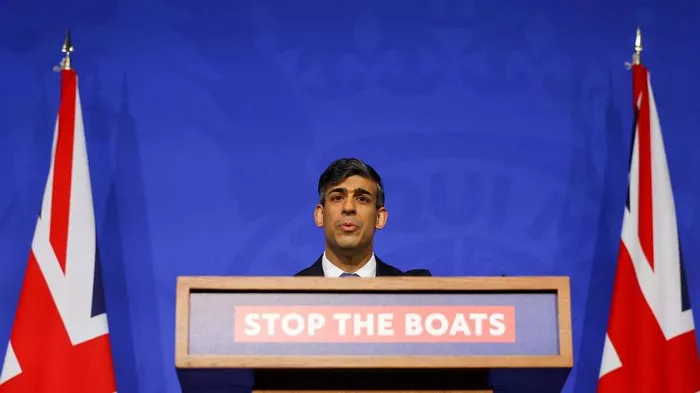After contentious debates and amendments between the Houses of Commons and Lords, the bill proposed by Chancellor Rishi Sunak to deport asylum seekers to Rwanda has gained parliamentary approval, marking a significant step in the government’s efforts to curb irregular migration across the Channel.
The legislation, which targets asylum seekers arriving in the UK through irregular means, particularly by small boats crossing the Channel, is expected to receive royal assent imminently. According to sources within the Home Office, preparations are underway to initiate the first phase of deportations to East Africa in July, starting with a group of individuals identified as having weak legal grounds to remain in the UK.
Home Secretary James Cleverly hailed the passage of the bill as a pivotal moment in the government’s strategy to deter unauthorized migration. Emphasizing the need to prevent abuse of human rights claims to obstruct deportations, Cleverly underscored the sovereignty of the UK Parliament and the government’s authority to override interim blocking measures imposed by European courts.
However, critics, including Denisa Delić, Director of Advocacy at the International Rescue Committee UK, have condemned the deportation policy as ineffective, needlessly cruel, and financially burdensome. Advocates urge the government to reconsider its approach, advocating instead for a more compassionate and orderly immigration system, including the expansion of safe routes such as resettlement and family reunion.
Despite opposition, the Home Office has proceeded with plans to deport approximately 350 migrants considered to pose minimal risk of successfully challenging their removal. Legal experts anticipate a wave of individual legal challenges against deportations, with asylum seekers granted the opportunity to appeal deportation orders based on the risk of serious harm upon return to Rwanda.
Under the bill, detainees facing deportation have a limited window to lodge appeals, with stringent timelines imposed for judicial review processes. The considerable costs associated with the deportation scheme, estimated at £1.8 million per 300 deportees, have raised concerns about its efficacy and value for money.
Moreover, fears abound within the Home Office of a potential mass disappearance of asylum seekers upon the commencement of deportation operations, as individuals seek to evade removal to Rwanda.
While the government has assured that individuals eligible under the Afghan Relocations and Assistance Policy (Arap) will not be deported to Rwanda, concerns persist regarding the scheme’s implications for international commitments and judicial oversight.
In response to criticism and delays, Prime Minister Boris Johnson reiterated his commitment to proceeding with deportation flights to Rwanda, emphasizing the government’s resolve to end legal impediments associated with deportation processes.
However, opposition figures, including Labour’s Shadow Home Secretary Yvette Cooper, have accused the government of scapegoating delays on parliamentary procedures, highlighting the Conservative Party’s majority control in both Houses of Parliament.
Despite contentious debates and opposition, the passage of the bill signifies a significant shift in the UK’s immigration policy, with implications for asylum seekers and international obligations alike.


